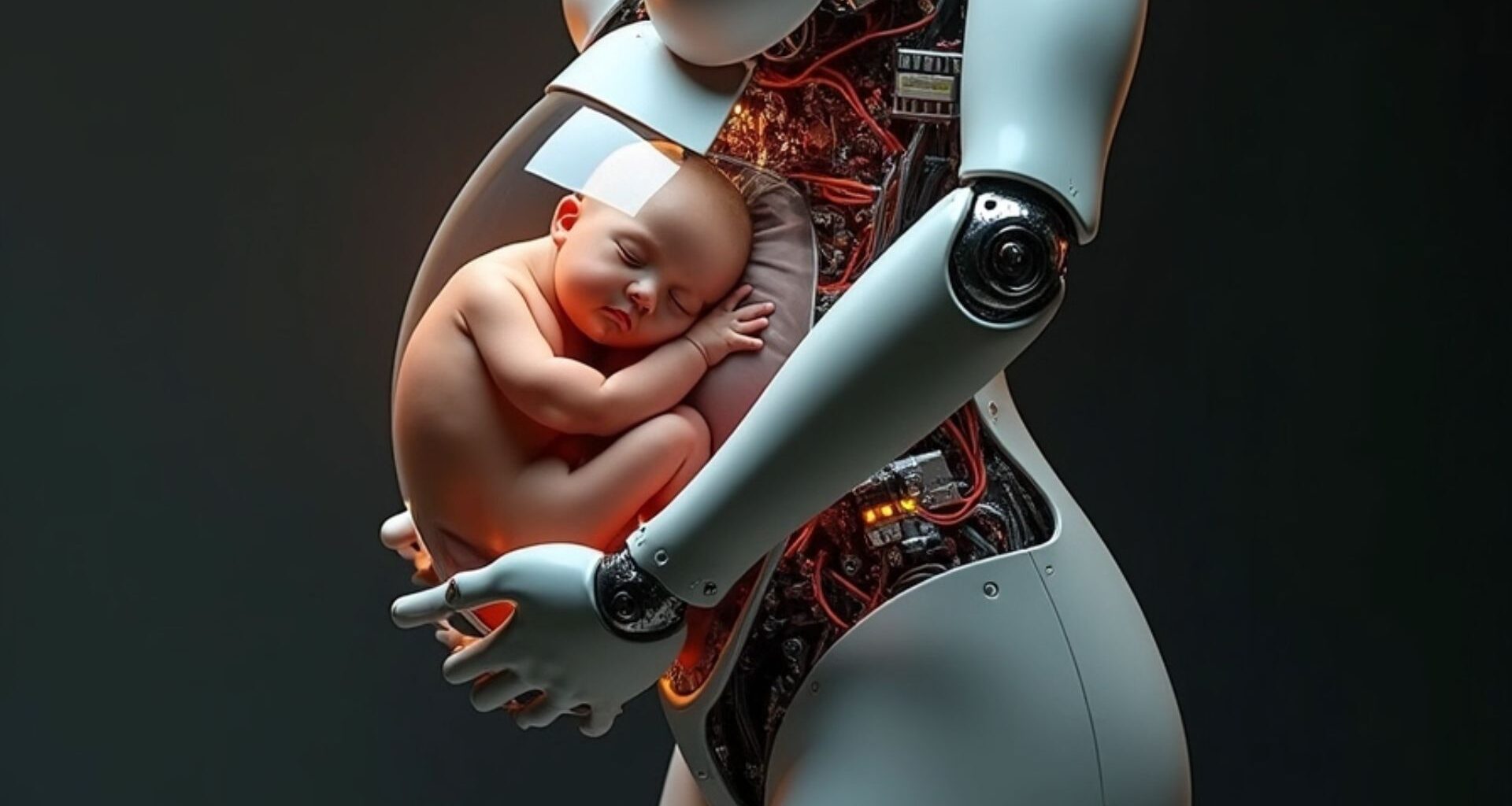A Chinese tech firm is racing to deliver what could be the world’s first “gestation robot”.
The idea from Kaiwa Technology, based in Guangzhou, involves a humanoid designed with an artificial womb embedded in its abdomen, intended to carry a fetus through ten months of gestation and deliver a baby, according to Chinese media outlets.
Slated for debut by 2026 and expected to sell for under 100,000 yuan (around $13,900), the robot aims to offer a pregnancy alternative for those who wish to avoid the burdens of human gestation.
The announcement has triggered intense public discourse—from ethical unease to hopeful possibilities for the infertile.
Recently, Chinese researchers introduced GEAIR, the world’s first AI-powered breeding robot, capable of autonomous cruising and cross-pollination to cut costs, shorten cycles, and boost efficiency.
Humanoid birth machine
The bold vision of a humanoid surrogate pregnancy robot was presented at the 2025 World Robot Conference in Beijing by Zhang Qifeng, founder of Kaiwa Technology and affiliated with Nanyang Technological University, according to ECNS.
According to Qifeng, it is not merely an incubator but a life-sized humanoid equipped with an artificial womb in its abdomen, capable of replicating the entire process from conception to delivery.
The core innovation lies in artificial womb technology, where a fetus develops in artificial amniotic fluid and receives nutrients through a hose, mimicking natural gestation. Dr. Zhang claimed the technology is already mature in laboratory settings and now needs integration into a humanoid form to enable real human–robot interaction during pregnancy, according to Oddity Central.
Qifeng anticipates that a prototype of his pregnancy robot will be ready within a year, priced at under $13,900. On the topic of ethical and legal considerations, he said discussions have already been held with authorities in Guangdong Province, and related proposals have been submitted as part of ongoing policy and legislative deliberations, reports Chosun Biz.
AI breeds the future
Artificial wombs have shown promising results in animal studies. In 2017, researchers at the Children’s Hospital of Philadelphia successfully nurtured a premature lamb—equivalent to 23 weeks of human pregnancy—in a “biobag,” a transparent vinyl sac filled with warm, saline-based artificial amniotic fluid. Nutrients were delivered via a tube attached to the umbilical cord, allowing the lamb to grow wool within four weeks, according to Chosun Biz.
However, current artificial wombs function more like neonatal incubators, supporting life only after partial gestation. For Dr. Zhang’s concept to work, the technology must advance to support fertilization, implantation, and full-term pregnancy—details he did not disclose, leaving questions about the scientific, ethical, and legal challenges ahead.
Another notable development showcased at the 2025 World Robot Conference is the world’s first AI-powered breeding robot—integrating artificial intelligence and biotechnology to revolutionize crop breeding.
Led researchers at the Institute of Genetics and Developmental Biology, Chinese Academy of Sciences, the team used gene editing to create male-sterile flowers, enabling the robot to produce hybrid seeds efficiently.
Combined with advanced methods like “de novo domestication” and “speed breeding,” GEAIR forms the world’s first “intelligent robotic breeding factory,” capable of rapidly generating high-quality plant varieties.
GEAIR has already been applied to develop a male-sterile soybean system, potentially boosting China’s hybrid breeding capacity and crop yields. Xu noted that the project establishes a closed-loop system for intelligent, fully autonomous robotic breeding—pioneering AI-driven agriculture.
According to researchers, with biotechnology as the foundation, AI as the driver, and robotics as the operator, the innovation demonstrates China’s leading role in merging AI with biological breeding.

